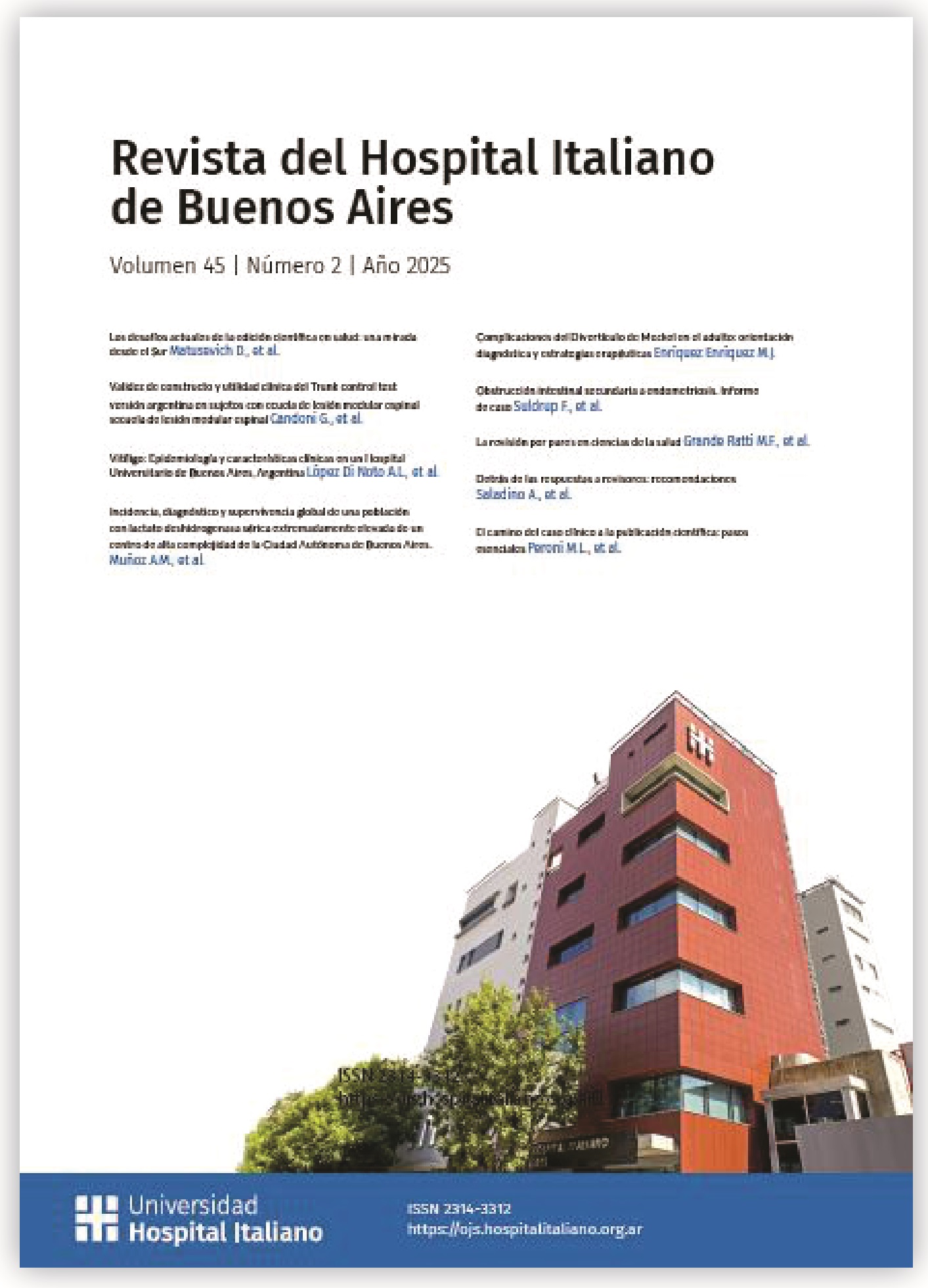Complications of Meckel's diverticulum in adults: diagnostic guidance and therapeutic strategies
Main Article Content
Abstract
Introduction: Meckel's diverticulum (MD) is a congenital gastrointestinal malformation that is generated by the involution of the omphalomesenteric duct in embryonic life. It has an incidence of 0.6 to 4%, is the main etiology of lower gastrointestinal bleeding in pediatrics, and constitutes a diagnosis of exclusion in adulthood. Objective: to carry out a bibliographic review on Meckel's diverticulum in adults and its complications based on current literature. Method: A bibliographic review was carried out in the electronic databases: PubMed, SciELO and Elsevier; 30 articles were analyzed, in English and Spanish, published in the last ten years. State of the art: DM is generally asymptomatic until adulthood, and may present as symptoms suggestive of acute appendicitis, intestinal obstruction or lower gastrointestinal bleeding. Its discovery is mostly incidental. Diagnostic methods include computed tomography, Technetium-99m pertechnetate scintigraphy, video capsule endoscopy, and surgical options such as laparoscopy and laparotomy. Discussion: According to the analysis of the scientific literature, surgery is not widely indicated in the absence of complications and risk factors, which include male sex, age under 40 years, a diverticulum greater than 2 centimeters in length and macroscopic alteration of the mucosa seen. intraoperatively. Resection plus anastomosis seems comparable to other techniques due to the lower risk of leaving abnormal heterotopic mucosa. Conclusion: Due to its low incidence and multiple complications with a clinical picture similar to other diverticular pathologies, Meckel's diverticulum represents both a diagnostic and therapeutic challenge.
Downloads
Article Details
Section

This work is licensed under a Creative Commons Attribution-NonCommercial-ShareAlike 4.0 International License.

